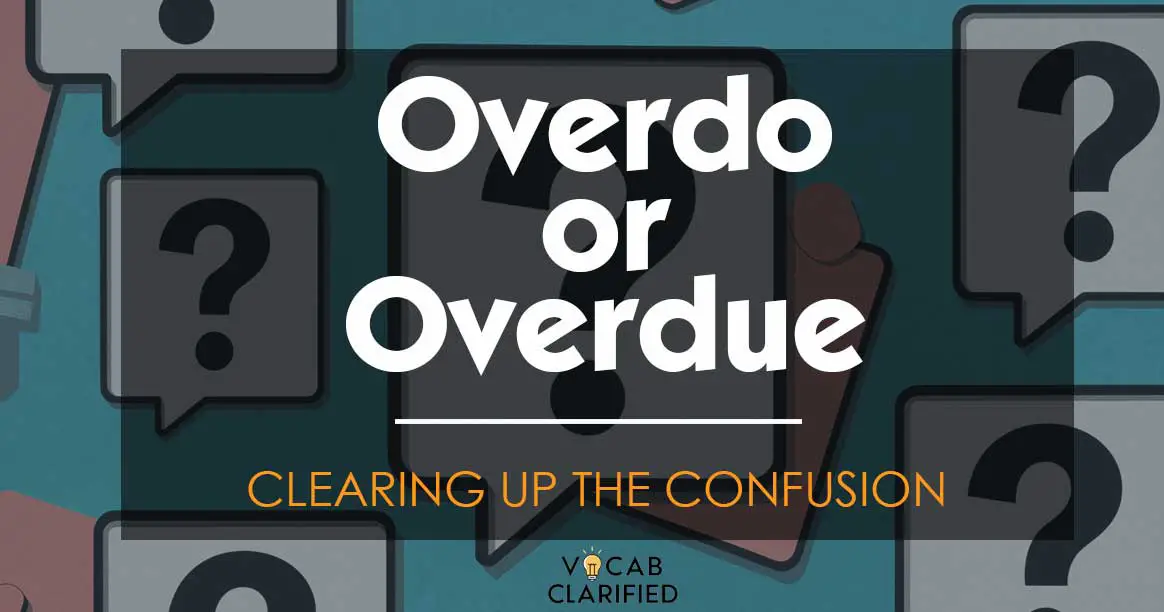Have you ever wondered whether to use overdo or overdue in a sentence? These two words sound remarkably similar but have entirely different meanings and uses.
The difference between these words is subtle yet crucial, and getting them right can help you avoid some common writing pitfalls.
Understanding Overdo And Overdue
Overdo: Definition and Usage
Overdo is a verb that refers to doing something excessively or to an exaggerated extent. It’s commonly used when talking about going beyond a reasonable limit or capacity.
For example:
- “Don’t overdo it at the gym; you might hurt yourself.”
- “She tends to overdo the decorations for parties.”
In these cases, overdo describes actions taken too far, whether physically, emotionally, or creatively.
Overdue: Definition and Usage
On the other hand, overdue is an adjective that describes something that is past its expected or scheduled time. It’s often applied to deadlines or events that should have already happened.
For instance:
- “My library book is overdue; I need to return it today.”
- “The project is long overdue, and we’re facing penalties.”
Overdue signals that something has not occurred or been completed within the necessary time frame.
Side-by-Side Comparison
| Aspect | Overdo | Overdue |
| Definition | To do something excessively | Something that is late or past due |
| Common Usage | “Don’t overdo it at work.” | “This report is overdue by a week.” |
| Key Differences | Refers to excessive action | Refers to something past a due date |
When deciding between overdo and overdue, think about context. If you’re referring to actions that are too much or too extreme, overdo is your word.
If you’re discussing something that is late or delayed, overdue is the correct choice.
Everyday Usage Examples
These examples highlight the difference between overdo and overdue in everyday situations:
- Overdo: “If you overdo the spices, the dish might become too spicy to eat.”
- Overdue: “My car payment is overdue, and I need to settle it soon.”
- Overdo: “You shouldn’t overdo it when cleaning—take breaks to avoid exhaustion.”
- Overdue: “His apology was long overdue, but I’m glad he finally said sorry.”
- Overdo: “The actor tends to overdo his emotions in dramatic scenes.”
- Overdue: “The rent is overdue by three days.”
Conclusion
In summary, overdo refers to going overboard with an action, while overdue means something that is delayed or past its expected time.
Understanding the difference between these terms ensures that you communicate clearly and accurately, avoiding misunderstandings. So, next time you’re thinking about actions versus deadlines, you’ll know which word to use!

